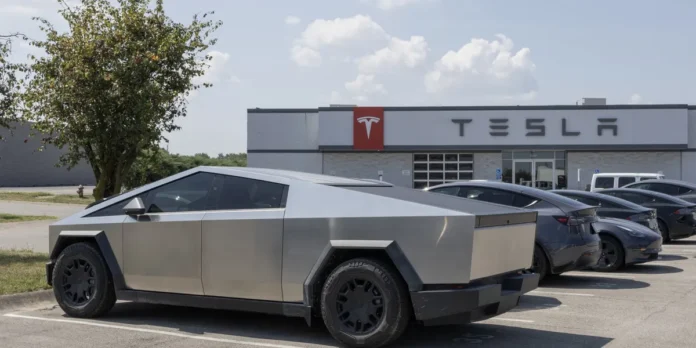Staff Reporter
A recent survey indicates that over 40% of Tesla owners have faced vandalism aimed at their vehicles, yet fewer than 20% regret their purchase from Elon Musk.
According to Kelley Blue Book, a study by Guardian Service—an organization that helps consumers find insurance—has highlighted the challenges many Tesla owners are encountering.
The survey, which included responses from 508 Tesla owners, reveals how these incidents, along with increasing insurance costs, are changing the electric vehicle (EV) ownership experience in the U.S.
The findings show that 40% of Tesla owners reported intentional damage to their cars, with average repair costs reaching $1,900.
Conducted in April 2025, the study reflects the impact of recent domestic terrorism and political violence directed at Musk for his support of President Donald Trump.
Interestingly, much of the vandalism appears to come from those on the left, despite them being the primary market for Musk’s EVs.
Vandalism risk varies by region, with Tesla owners in the South being the most affected—46% reported intentional damage.
This rate is more than double that of Midwestern owners (11%) and significantly higher than those in the West (21%) and Northeast (22%). Younger drivers, particularly those from Generation Z, reported the highest rates of vandalism, with 61% experiencing damage to their vehicles.
In addition to physical damage, Tesla owners also reported verbal hostility and negative gestures from strangers.
Forty-three percent of respondents experienced such incidents, prompting 60% to drive less or avoid certain areas for safety reasons.
Despite these alarming trends, only 19% of Tesla owners expressed regret about their purchase. However, a notable 30% indicated they would not buy another Tesla in the future, suggesting a shift for a brand that has historically enjoyed high customer loyalty.
The increase in vandalism may be contributing to rising insurance costs for Tesla owners. The study found that 61% of respondents reported higher premiums this year, with an average increase of $340 annually.
It’s important to note that even prior to the protests at Tesla facilities, insurance costs for these vehicles were generally higher than for other EVs.
This is largely due to Tesla’s design, which often requires complete battery replacement after minor damage, unlike many competitors that use modular batteries that can be repaired more easily.

